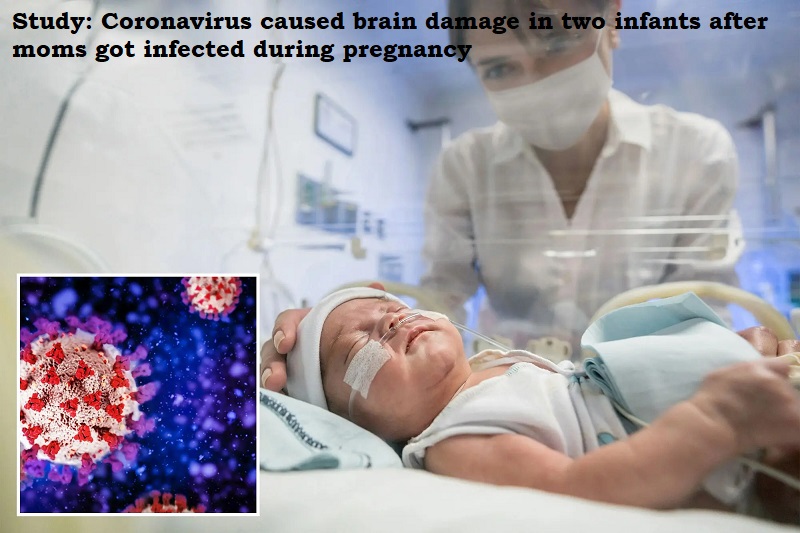
A recent study has identified two confirmed cases of babies born with brain damage after being infected with SARS-CoV-2 inside the womb of their mothers. The study, titled ‘Maternal SARS-CoV-2, Placental Changes and Brain Injury in 2 Neonates’, was published by the University of Miami in the journal Pediatrics on Thursday. According to the researchers, this is the first study to confirm cross-placental transmission of the virus that caused brain damage in newborns.
The two young mothers, who gave birth to the babies, had tested positive for the virus during their second trimester, at the height of the pandemic’s Delta wave in 2020. Both babies had tested negative for the virus at birth, but their reports showed a significant rise of SARS-CoV-2 antibodies detectable in their blood, indicating that the virus had crossed the placenta or that the baby’s immune response was responsible.
Both infants experienced seizures, had small head sizes and developmental delays, and one infant died at 13 months of age. The study also ‘raises the possibility’ that the virus may be able to directly infect the fetal brain. The researchers noted that several viruses, such as Cytomegalovirus, Rubella, HIV and Zika, are capable of crossing the placenta and causing fetal brain damage.
Dr Michael Paidas, chair of obstetrics and gynecology at the University of Miami, described the findings as ‘important’ because it is the first time the virus has been demonstrated in a fetal organ with transplacental passage. Professor Shahnaz Duara, senior author of the study, said that while many women are affected by COVID-19 during pregnancy, seeing these types of problems in infants at birth is clearly unusual. The study’s authors are trying to understand what made these two pregnancies different to direct research toward protecting vulnerable babies.
The study highlights the need for pregnant women to take extra precautions to avoid getting infected with COVID-19, especially since vaccines were not available during the time of the Delta wave. The findings also underscore the need for further research to understand the long-term effects of COVID-19 on fetal and infant health.

Post Your Comments